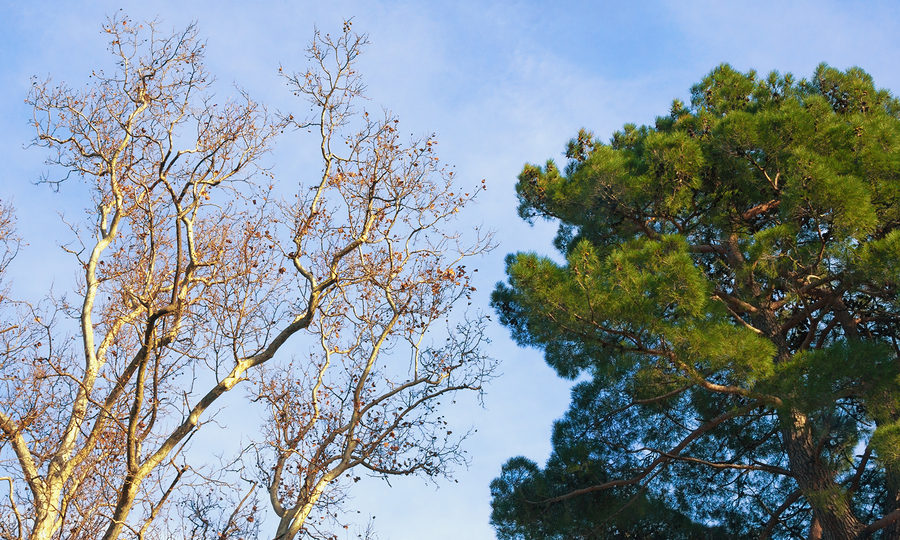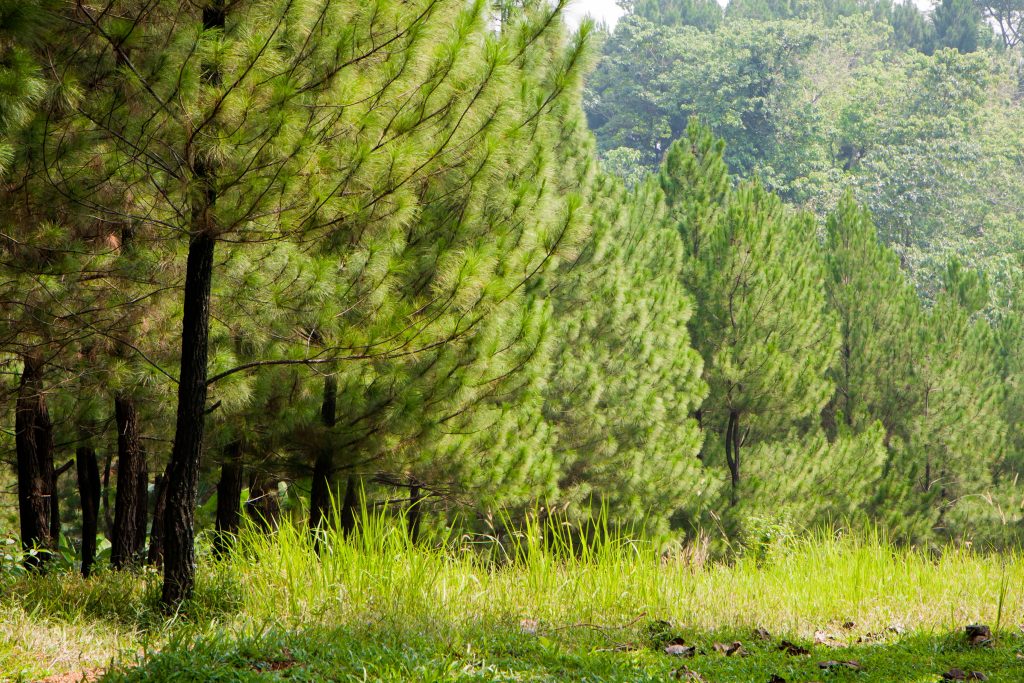There are many wonderful things to appreciate about trees. They produce oxygen for all land organisms to breathe, clean our air, reduce annual storm run-off, and provide a wide array of benefits like shade, beauty, energy efficiency, investment value, privacy, lumber, and more! It is no question that trees are the most vital assets tour planet. For this reason, we must protect and preserve our beloved trees at all costs! Learning about trees is a fun way to gain a deeper appreciation for them, and can motivate you to prioritize your own tree care agendas. The best place to start is at the beginning, in which you learn the two primary categories of tree species.
Continue reading to learn the difference between evergreen trees and deciduous trees.

Evergreens
Evergreen trees are coniferous, and include species like pines, hemlocks, firs, and spruces. But not all evergreens are conifers. They have needles instead of leaves, which remain in place all year long. Even in the winter, evergreen trees do not lose their pine needles, but sometimes, they can turn color depending on environmental conditions. However, there are a few exceptions to this rule. Some conifers do lose their needles each fall. These include Larches, Tamaracks, Bald Cypress. Gymnosperms and conifers are evergreen vegetation. See our blog, “A Brief Comparison of Angiosperms and Gymnosperms” to learn more.
Deciduous Trees
When you see leaves on a tree, you are looking at a deciduous tree. Deciduous trees grow new leaves in the spring and shed their leaves in the fall; then they remain alive, but dormant, all winter long until the sun shines again, and new life can emerge with warmer weather. In the winter, these trees look bare and brazen, so sometimes they are misinterpreted as dead. But this is far from the truth! Deciduous trees simple “sleep” away the wintertime until better weather returns. They shut off all their photosynthesis and chlorophyll productions and take a long seasonal nap! Angiosperms and flowering plants are deciduous vegetation.
Fishers Tree Service You Can Count On
Call 317-537-9770 for professional tree service in Fishers, Indiana. We are highly trained and experienced tree care contractors that offer a wide range of residential and commercial tree services at competitive prices. We also offer tree service coupons and discounts! Call 317-537-9770 to request a free estimate for Fishers tree service, today.





